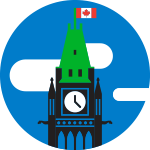Union News - September 2021
 On September 20th, 2021 Canadians go to the polls to vote in Canada’s 44th general election. Our union has identified eight key areas that should be of interest to you as both voters and public service employees.
On September 20th, 2021 Canadians go to the polls to vote in Canada’s 44th general election. Our union has identified eight key areas that should be of interest to you as both voters and public service employees.
- Healthcare – expanded coverage, more practitioners, and privatization;
- Climate change/environment – cleaner air, water and land;
- Affordable child-care – more spaces or direct support;
- Workers’ rights – harassment free work places and better labour rights;
- A just pandemic recovery – tax fairness, protecting public services, enhancing EI benefits and better sick leave;
- Indigenous issues – better housing, clean water and reconciliation;
- Human rights – addressing systemic racism, improved disability benefits, LGBTQ2+ rights and gender equity; and
- Post-secondary education – accessibility, student debt and sustainable funding.
As federal public servants, we are in a unique position as we are electing the very people who direct policy on job security, pensions and our work life at federal government departments and agencies. We are essentially electing our employer.
Past governments have affected the work that we do by making significant changes to not only tax policy, but how many of us work for the agency, what work we do and how much we are paid – including both raises, wage freezes and even roll backs. Who is elected can affect what we will be making in future years, whether we are even doing the work we do now and whether we have a stable pension for retirement.
PSAC members total over 215,000 workers across the country – this includes us, the almost 30,000 members of the Union of Taxation Employees. In some electoral districts we may have a handful of members, in some - a few hundred members and in some others - thousands.
You can actively participate, outside of work hours, in the election by wearing a button in public, displaying a lawn sign, giving political opinions, working on a campaign, formulating policies, peacefully demonstrating, raising funds for campaigns, attending conventions and running for political office. There may be rules and restrictions that may apply to some of these. You may contact your local union representatives for further information.
In the last federal election, there were many ridings that were won by the smallest of margins. Here are the ten closest:
- Yukon – 72 votes;
- Richmond Hill (ON) – 112 votes,
- Quebec – 215 votes;
- Kitchener-Conestoga (ON) – 273 votes;
- Hochelaga – 319 votes (QC);
- Port Moody-Coquitlam (BC) – 333 votes;
- Coquitlam-Port Coquitlam (BC) – 339 votes;
- Miramichi-Grand Lake (NB) – 414 votes;
- Cumberland-Colchester (NS) – 453 votes; and
- Chicoutimi-Le Fjord (QC) – 614 votes
In many of these ridings we have dozens, if not hundreds, of members and their families. UTE members have the ability to influence who is elected and whether they have a majority or a minority in the next Parliament of Canada. It is extremely important that UTE members are vocal and exercise their right to vote. Who gets in, who gets a majority government and who gets a minority government, will all have different impacts on our work life, our future bargaining and economic well being.
As a final note, I want to commend the political action of members across the country – especially our brothers, sisters and friends in Shawinigan, Quebec as they mobilize around the issue of the Quebec Single Tax Return.
*As a reminder to all locals, you are not allowed to spend funds without prior approval of UTE and PSAC as there are strict rules regarding spending during a federal election and all funds must be reported by PSAC.
In Solidarity,
Jamie vanSydenborgh
Regional Vice-President Southwestern Ontario
Chair – UTE Political Action Committee
